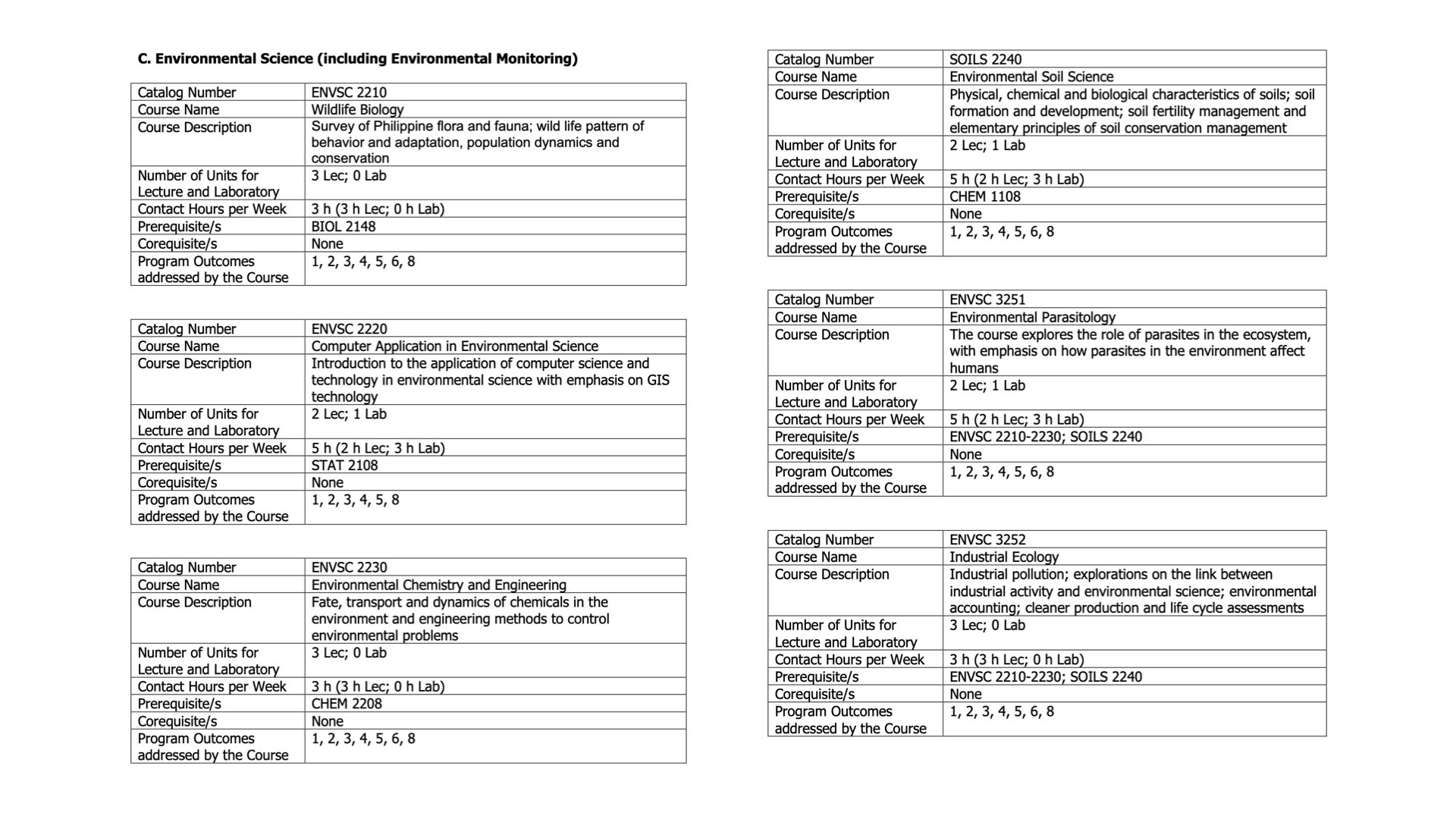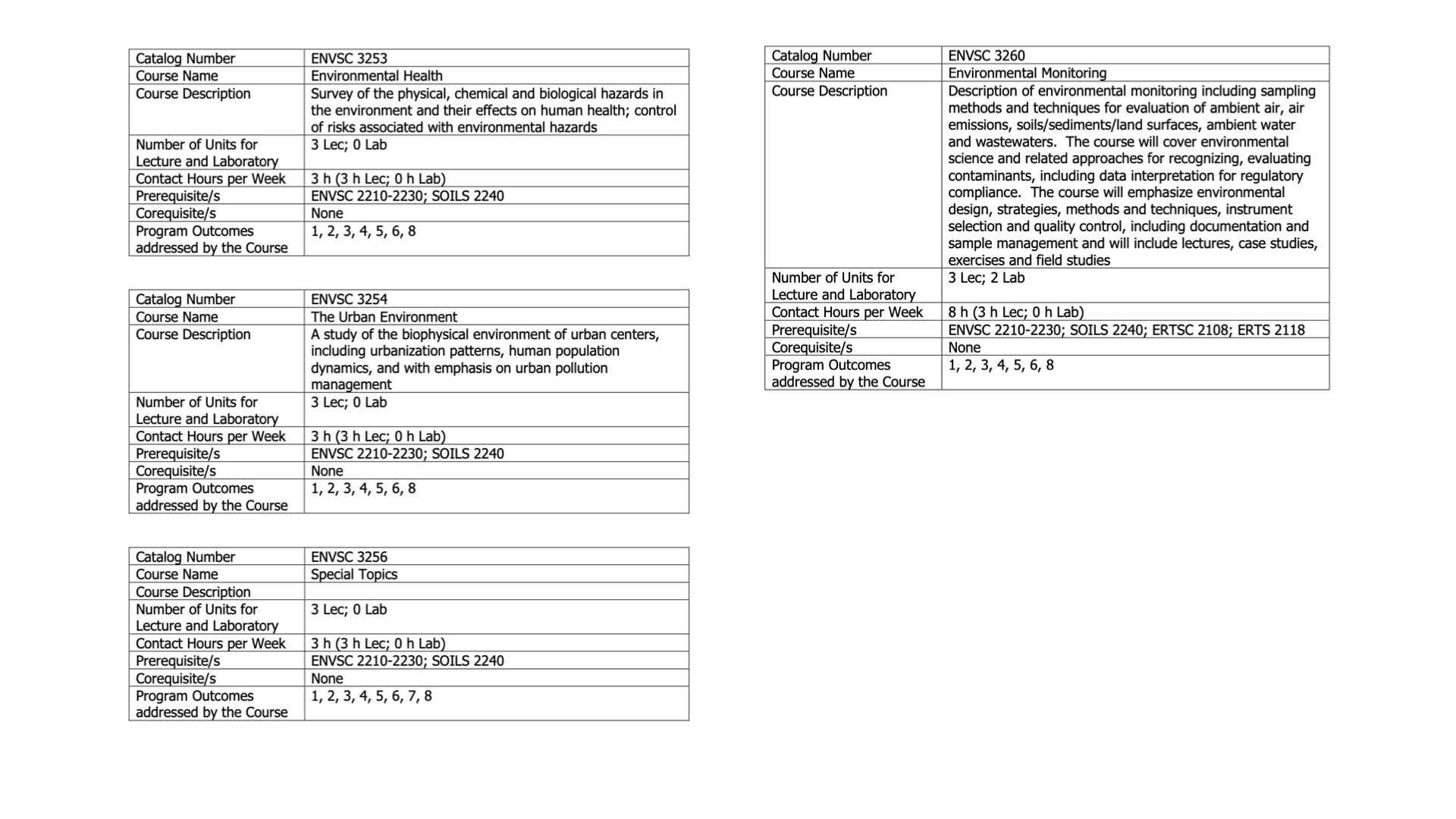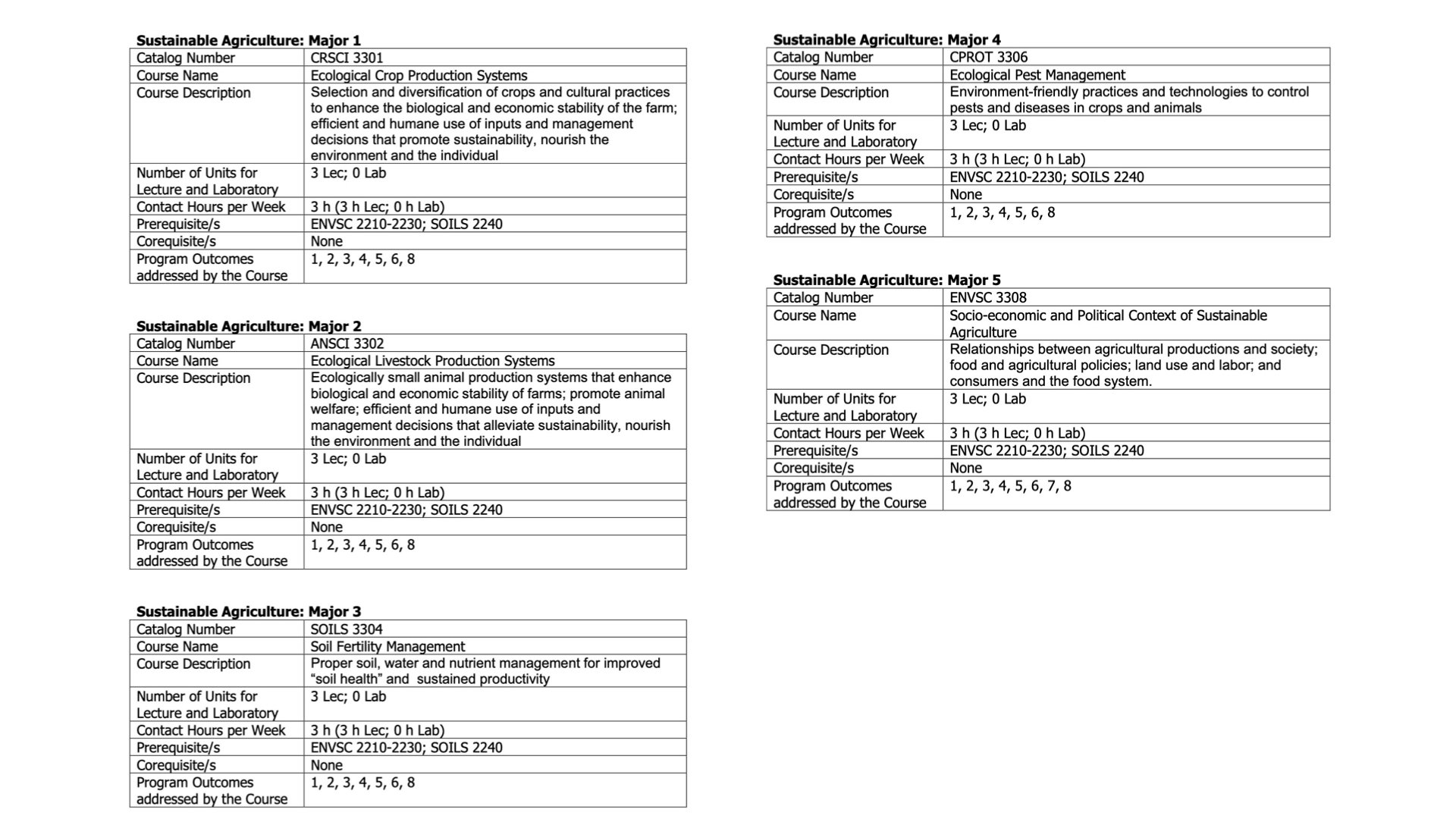Program Educational Objectives
Three to five years after graduation, the BSES graduates are:
professionals who demonstrate mastery of the fundamental concepts of environmental science, and apply appropriate multidisciplinary and integrated tools and approaches in addressing environmental problems and concerns;
environmental scientists or managers who (a) demonstrate competence in the utilization or development of tools, methodologies and technologies for the study, protection and management of the environment, and (b) adhere to professional ethics and standards;
environmental practitioners who demonstrate effective communication skills, the ability to work well either individually or as part of a multidisciplinary or multicultural team, and the qualities of a lifelong learner who continuously work for personal and professional development, and;
professionals who are able to use appropriate knowledge and technology, perspectives from the natural and social sciences, and environmental values to tackle local, regional and global environmental challenges and promote sustainable development.
Program Outcomes
By the time of graduation, students of the BSES program have the ability to:
PO1. Demonstrate a broad and coherent understanding of the core areas of physical and natural sciences, and the latest developments in environmental science.
PO2. Apply analytical, mathematical, statistical, critical thinking, and problem-solving skills using the scientific method and appropriate technologies, and connect science and math to other disciplines when addressing environmental challenges.
PO3. Communicate effectively in both English and Filipino, presenting scientific and environmental knowledge to various audiences, including scientists, policymakers, and the public.
PO4. Work effectively both independently and in multidisciplinary and multicultural teams, demonstrating professional, social, and ethical responsibility, and applying safe and responsible laboratory or field practices.
PO5. Design and conduct research or projects that contribute to environmental protection, management, and the generation of new knowledge or innovation.
PO6. Demonstrate awareness of the limitations and ethical implications of scientific and environmental practices in real-world settings.
PO7. Preserve and promote Filipino historical and cultural heritage.
PO8. Support national, regional, and local development plans through the application of environmental science knowledge and competencies.
Curriculum Map
Basic Course Information
Catalog Number: ENVSC 2256
Course Name: Special Topics
Course Description:
Number of Units for Lecture and Laboratory: 3 Lec; 0 Lab
Contact Hours per Week: 3 h (3 h Lec; 0 h Lab)
Prerequisite/s: ENVSC 2210; ENVSC 2220; ENVSC 2230; SOILS 2240
Corequisite/s: None
Program outcomes addressed by the course: a, b, c, d, f, g, h, i, j, k, l, m, n, o, p, q, r, s, t, u, v
Other Information about the Program
Board of Regents Approval: BOR Res. No. 42-2018 (13 September 2018); Effective SY 2018-2019
CHED Certificate of Program Compliance (COPC): No. 19, s. 2015 (issued on January 8, 2015); Effective AY 2014-2015
Accrediting Agency of Chartered Colleges and Universities in the Philippines (AACCUP): Level 1 Accredited; September 16, 2022 - September 15, 2025











